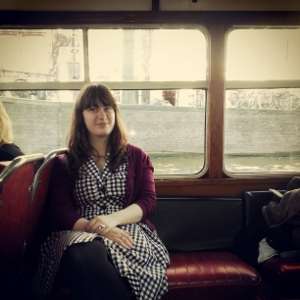Continuing Woven Words, the Lutosławski festival, the Philharmonia Orchestra and Esa-Pekka Salonen presented us with another evening of impressive music and impressive programming. Like featuring Ravael’s Daphnis et Chloé in the Lutosławski concert on 30 January, opening this evening with Debussy’s La mer proved an excellent decision.
La mer is a piece that heavily relies on interpretation. It can be sterile and perhaps even tedious, nothing more than some pleasant background music, but under the right baton it can be an absolutely exhilarating piece of music. This is what Esa-Pekka Salonen and the Philharmonia delivered. With the emphasis being placed on contrasts and rhythm in the music, it mimicked the unruly nature of the sea. Occasionally the timing was a little off, but this did not bother me. The Philharmonia proved that a passionate performance of La mer that emphasises the contrasts in the piece and its wild nature gives for a much more satisfying performance than one that approaches the work with a striving for perfection.
Lutosławski’s Cello Concerto (1970) is an extraordinary piece. Originally composed for Msistlav Rostropovich, it requires tremendous virtuosity and devotion from the soloist. Truls Mørk’s playing of the opening cadenza already displayed all of these characteristics. He brought something striking to the concerto, his return to the repeating Ds – the foundation of the cadenza – was almost stoic, calm, but any other notes in the movement were played with incredible vigour, the intensity of which was only increased by Mørk’s body language.
As soon as the orchestra joined in, heralded by brass instruments, the concerto really took off. The interplay between cello and orchestra was fascinating to say the least, often battling against each other, with alternating brass and cello, to some absolutely stunning moments when the cello was joined by double basses and cellos – Mørk’s playing in the lower registers here was extraordinary. Most exciting of all was the final movement, where the solo cello tries to hold his own against the orchestral violence of the Philharmonia, and in fact turns out to be victorious.
Where during La mer the timing wasn’t always perfect, both the orchestra and Mørk were impeccable during the concerto. Esa-Pekka Salonen kept on top of the orchestra, allowing Mørk room to play the solo part with some license. This is not an easy feat for the conductor: the Cello Concerto, though not necessarily complex to listen to, is at times chaotic and always intense. As a listener you are constantly surprised, constantly challenged, and consistently in awe.
The Concerto for Orchestra is somewhat more traditional than the Cello Concerto, though not any less lively. Inspired by Béla Bartók’s famous Concerto for Orchestra, Lutosławski finished the piece in 1954. It contains many folk melodies, most memorably in the end of the first movement, where the concertmaster has a beautiful solo. The second movement is a scherzo; it’s fast and thrilling, yet it still sounds fairly subdued. The Philharmonia is not afraid of turning up the volume, and the fact that the second movement was consistently more quiet actually worked beautifully. Similarly, the opening of the third movement, with quiet basses and piano, soon followed by the cellos, felt like a breath of fresh air amidst all the turbulence.
It is this contrast within Lutosławski’s pieces and even within individual movements that explains part of their appeal. There is never a moment of boredom, never a moment of contemplation – Lutosławski makes sure you are always on the edge of your seat. As also evidenced by La mer, the Philharmonia and Esa-Pekka Salonen are unequalled at emphasizing the antitheses in music whilst remaining true to it.
Even though Woven Words is turning out to be a festival of fantastic musical quality, the Philharmonia have apparently not yet reached their intended audience. Before the concert started many people were ushered to move to seats nearer the orchestra, and a concert like this one did not deserve that many empty seats.


